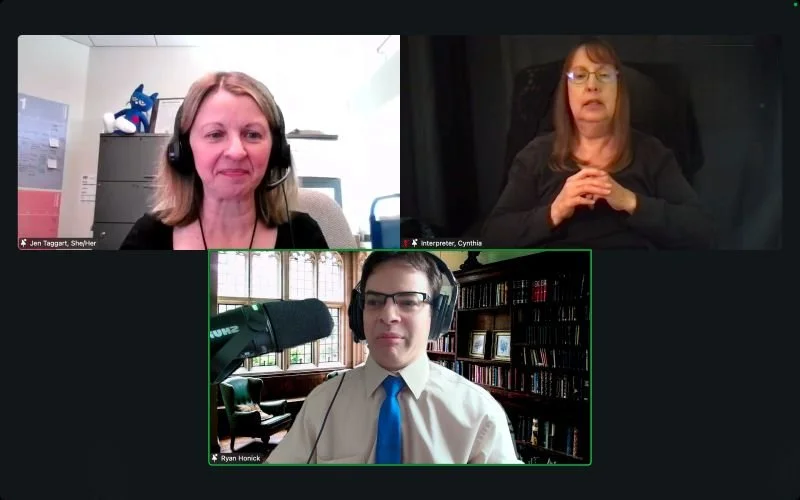Ryan presents via Zoom at a workshop on creating inclusive workspaces.
As we kick off National Disability Employment Awareness Month, yesterday I had the incredible honor of delivering the closing keynote address at the Adaptive Umbrella Workshop, hosted by the Bloomfield Township Public Library. This workshop focused on fostering creative, inclusive workspaces, and it was a privilege to share my thoughts on how we can create environments where everyone feels like they belong.
I've seen firsthand how conversations around diversity, equity, inclusion, and access are often treated like checkboxes—something to do out of obligation rather than a genuine effort to celebrate difference. During the workshop, we talked about how true inclusion goes beyond merely checking off boxes; it’s about cultivating a culture where disability isn’t a dirty word or something to dance around.
We discussed how equity, not just equality, must be the goal. Equity recognizes that everyone needs different tools to succeed. The idea that reasonable accommodations—whether it’s telework, flexible schedules, or assistive technology—are “special” or “unfair” is still prevalent in many workplaces. But these accommodations are about creating a level playing field.
In the federal government, where I've worked for over a decade, telework has been a game-changer, especially during the pandemic. But it isn’t just about the pandemic—it’s about offering flexibility for employees who navigate complex physical and invisible disabilities like chronic pain. Accommodations like these are about empowerment, not favoritism.
Another important topic we tackled was the disclosure of invisible disabilities. A 2023 study by the SHRM revealed that 47% of employees with invisible disabilities haven’t disclosed them to their employers. This comes from a place of fear—fear that disclosure will harm career prospects or lead to workplace stigma. Employers must create safe spaces where employees feel empowered to disclose if they choose to, without fearing repercussions.
Finally, we talked about resentment. Sadly, workplace accommodations are often misunderstood, leading to friction among coworkers who don’t see or understand the need. But as I shared during my keynote: It’s not the manager’s job to justify accommodations to other employees. Accommodations are about equity.
This workshop reminded me that building inclusive workspaces is an ongoing process. It’s about continuous education, open conversations, and creative solutions. The more we talk about what inclusion really looks like, the better we get at building work environments that uplift everyone, not just a select few.
A huge thank you to Jennifer Taggart and the Bloomfield Township Public Library for hosting such an important event, and to everyone who attended and asked thought-provoking questions. Your engagement fuels the work we’re doing to create a more equitable future.

